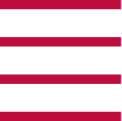
The Bulgarian Anti-corruption Ice Age
Bilyana Gyaurova-Wegertseder
Even during the pre-accession period, Bulgaria tried to create a working anti-corruption formula. It is no coincidence that one of the key requirements in the Cooperation and Verification Mechanism was dealing with corruption at the highest levels of power. The mechanism was formally abolished last year, or rather replaced by the horizontal rule of law mechanism, which covers all 27 member states. However, our country remained the only one in which no person from the top of the government has been convicted of corruption. The highest level reached is mayor of a Sofia suburb. In the meantime, institutions were created in the executive and judicial authorities, strategies were adopted, the last of which has a horizon until 2027. Real results are still lacking.
The Bulgarian ice age in terms of countering and dealing with corruption began as early as 2018, when the huge CACIAF (or shortly the Anti-corruption Commission) was established. Why? The adoption of the law, loudly announced as a requirement of the European Commission, was a mechanical integration of 4 different bodies, and at a time when these bodies were already starting to work and accumulate practice, and, something very important, they were starting to feel relatively independent. In addition, there was no analysis of what had been done so far, what had been done well, where there were deficiencies and what could be improved. The impact assessment was absolutely pro forma and failed to convince anyone of the need to create this mammoth commission. This mechanics was carried over including in relation to the new institution's budget, which in effect combined the budgets of the four separate bodies again without any consideration of how best to ensure the financial efficiency of the commission. The results were not long in coming. There were actually no results, except for the obvious fact that the Anti-corruption Commission was used as a cudgel against politicians, businessmen and people with an active civic position who were uncomfortable with the political status quo. And perhaps this was exactly the desired result.
At present we have a deepening of this ice age in terms of effective control of corruption. In the autumn of 2023, the 49th National Assembly adopted a new anti-corruption law, which creates two new commissions. A kind of return to the situation before 2018, but with the difference that the Commission for Countering of Corruption has already received investigative functions. The creation and start of work of the Commission for Countering Corruption never came to fruition. The adoption of the other law, which was supposed to regulate the legal relations related to the confiscation of illegally acquired property, the so-called civil forfeiture, was not reached either. And it didn't happen because the parliament crashed in the procedures and rules for organizing and holding elections for members of this commission.
And this is very telling, because apart from its main activity of legislating, the other key activity of a parliament is to fill the composition of individual and collective bodies in the executive branch, which in practice govern and determine policies in many areas of our lives. It is not only about the already notorious regulators, but also about institutions within the judiciary. Non-compliance with the mandate, unwillingness and refusal to comply with the mandate have been going on for many years. We have bodies such as the Inspectorate of the SJC, the Commission for Personal Data Protection, the Commission on Dossier and many others, which have been working for more than one term outside their mandate. The Bulgarian legislator does not fulfill his important function of filling timely the leadership corps of the state. With each passing parliament, the number of bodies that are elected by it and that operate outside of their mandate either does not change or increases. This necessitates the conclusion that ignoring the principle of mandate is a form of corruption.
And not just any kind of corruption, but strategic corruption.
If we assume that these processes started with endemic corruption, i.e. in certain areas, certain parts of state, public, economic, cultural life; we have gone through a state capture situation , where we have the consolidation of power mechanisms in certain political or pseudo-political elites, we are now at the level of strategic corruption. What is this form of corruption in the Bulgarian context? This is not only an abuse of power through non-implementation of the principle of mandate. It is a calculated, political and not only effort to manipulate entire systems in the executive and judiciary, and in the long run to achieve certain advantages, at the expense of public trust and social equality.
There are many examples - from legislative initiatives that push changes that serve specific parties, companies and even individuals / the already mentioned law on CACIAF, the changes in the Law for Territory Regulation, changes in the Judicial System Act, even changes in the Constitution/, through fulminant removal of persons in leadership positions, who become inconvenient /the former chairman of the Audit Office, heads of the National Health Insurance Fund, the former chief prosecutor/ and the equally fulminant fast installation of convenient heads of the relevant institutions. By the way, another manifestation of strategic corruption is that with each subsequent parliament, the time of the procedure for electing a person/s to key management positions is shortened. For the last nearly 10 legislatures , the longest procedure of 141 days was that for the election of the chairman of the Commission for Protection of Competition /in the 43rd National Assembly/. The shortest are from the last parliament, when the chairman of the Healthcare Agency was "elected" within a few hours.
A new argument in favor of strategic corruption in Bulgaria was indirectly added with the changes in the Constitution from December 2023, and in particular in the part about the preselected choice the President has now for the people among who he can elect a caretaker Prime Minister. One of the possible persons for this is the Ombudsman and his deputy. Due to the resignation of the deputy and the election of the Ombudsman as the Bulgarian judge at the ECtHR, this institution is currently completely devoid of leadership. You could say it is on autopilot. And this is the institution which, figuratively speaking, is the lawyer of the citizens - called by law to protect the legal rights and interests of the average citizen, to issue instructions to the institutions, to propose legal changes and, last but not least, to appeal to the Constitutional Court.
Why is leaving this body without leadership an example of strategic corruption? Because by law the Ombudsman and his deputy are elected by a simple majority of the National Assembly, because the 49th parliament could and should have immediately organized a procedure for the election of an Ombudsman and because in this way, quite tendentially, the President is deprived of two of the opportunities provided to him under the Constitution. If elections are to be held in the fall of 2024, the 50th National Assembly is obliged to organize and conduct a procedure for the election of an Ombudsman and a deputy, otherwise the supreme body in our country will have violated the Constitution.
In the course of the election campaign, Mr. Borisov said: "GERB were to blame for the regulators, why the government of Kiril Petkov with a full majority and GERB in opposition did not replace the regulators, why - because they did not have so many party members for all posts." During the consultations on forming a regular government, at the meeting with President Rumen Radev, Mr. Borisov also said: "There is no such miracle as experts, we are all experts." The quotes are also an example of another element of strategic corruption – the complete stripping off sense of the individual institutions, to the extent that nothing depends on them, ergo , it does not matter at all who is at the head of the relevant body. The most important thing is that he is a "party member".
Strategic corruption does just that – it erodes public trust in institutions. And when citizens see their leaders exploiting the system for their own personal gain, it also erodes faith in democracy and democratic governance as such. We saw the results on June 9 - apathy and conscious detachment from political life in its broadest sense. The next step is civil tension as a response to the rapidly widening gap between the politicians and citizens agendas.
Whether it will get there is difficult to judge at this stage. At the moment, it is important that before elections are held again, the members of the parliament in the 50th National Assembly do some real work by conducting a procedure for the election of an Ombudsman /at least/, and why not for some of the other bodies independent of a decision of The Constitutional Court. This will give us, the citizens, the opportunity to see how they fill in the content of Art. 91b, para. 1 of the Constitution, namely, when choosing bodies, the principles of "...openness, transparency, publicity and justification..." should be observed.



